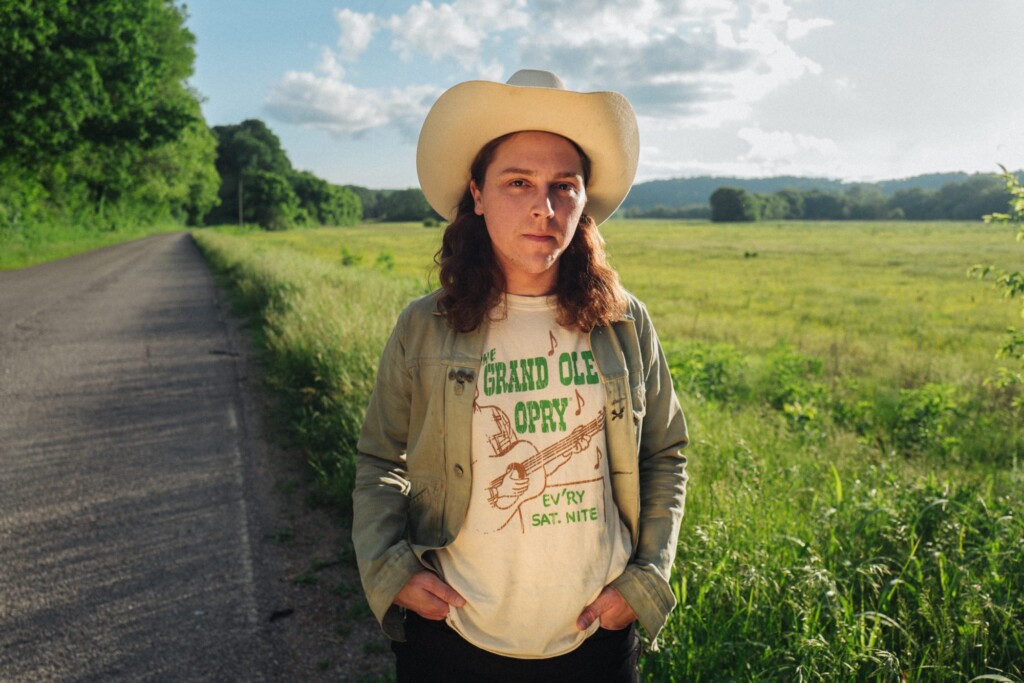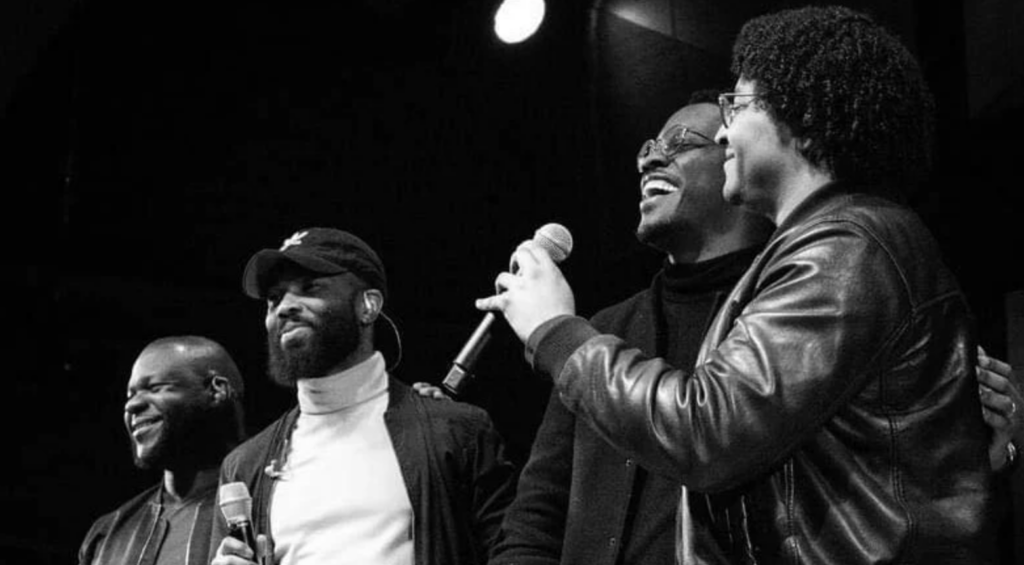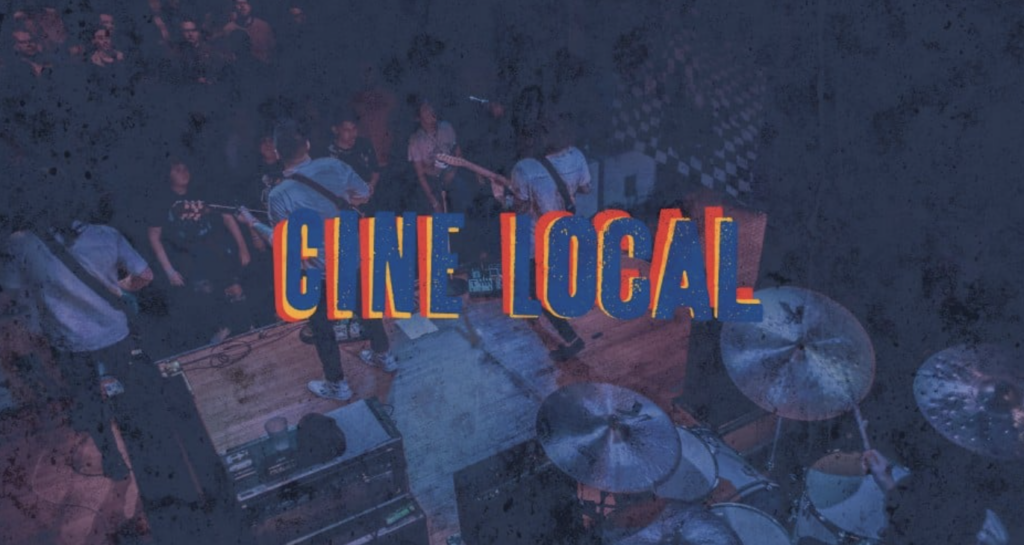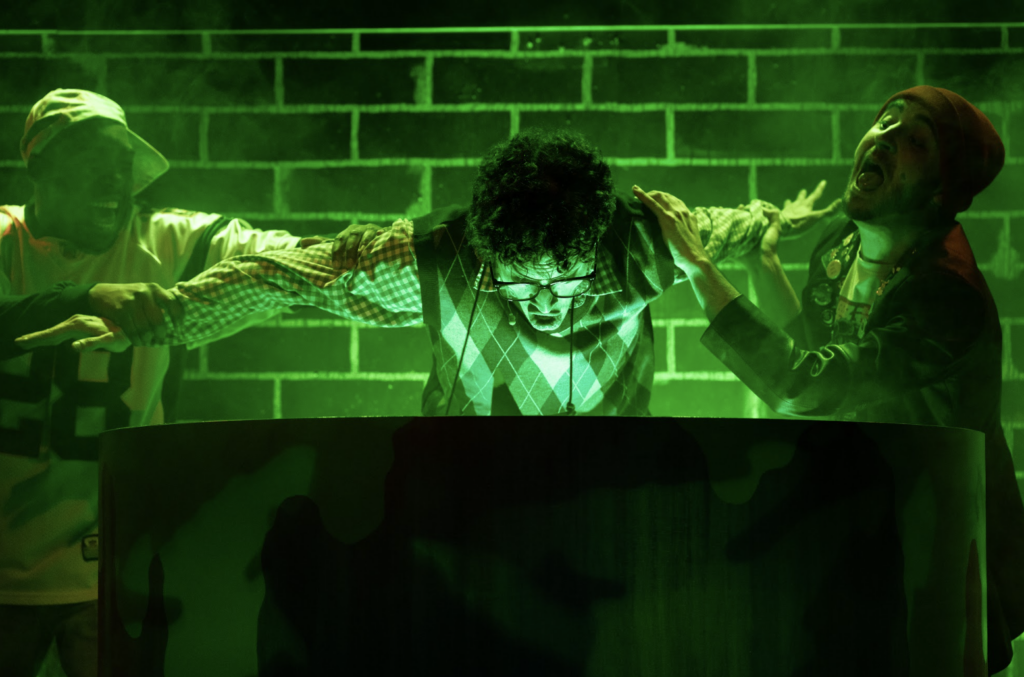Daniel Donato talks all things cosmic country ahead of November’s Granada show
Musician Daniel Donato released Horizons, the latest album from his band Daniel Donato’s Cosmic Country, at the end of August, continuing to push the boundaries of the genre. While frequently name-checked as a band you absolutely have to see live, their “kinetic fusion of country, rock, bluegrass, funk, and psychedelia” soars on Horizons, and might be the closest they’ve gotten in the studio to matching their live sets. Ahead of their show at The Granada on Thursday, Nov. 6, we spoke with Daniel Donato to discuss the new record and his career.
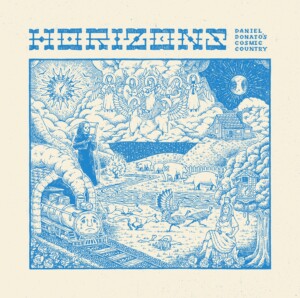 The Pitch: What was the first band you ever played and what’s your first experience playing music live?
The Pitch: What was the first band you ever played and what’s your first experience playing music live?
Daniel Donato: First experience playing music live is down at Legends Corner with my friend Jason Link and his band. Jason is a performer from Virginia, and he was just working a dayshift on the weekend down there at Legends Corner on Broadway. I was walking by the front door of the bar and his bass player, Woodstock 69 Randy Hall, called me out from the microphone—from the stage to the street called me out, and asked me to come play with them for a couple songs.
That movement had a lot to reveal to me and it was the causational moment that led to everything else that has really ever happened on stage for me, in my life. I was about 14 when that happened. I had a band in high school with my friends and we had a band called Laughing Bones, The Night Owls, and The Local Universe was one of the bands. In the pursuit of putting together a band, when I was about 18, I met Sugar Leg.
I also played a lot with bands that were kind of pick-up honky-tonk country bands that were just mainly made up of a cast of 12 different musicians, and they would be like, “Hey, can you play Wednesday 6 to 10?” No, I’m booked up. “Okay, we’ll call Kevin and then Kevin can play. Then who do we have on bass? Okay, call Randy and call Jared.” You know, it was just like a group of guys that I grew up playing with and they were far older than me. Sometimes they were in their early 70s.
Just like, “Hey you, come on up here. Your talent needs to be exposed.” That’s amazing.
It really is. He was a blessing.
What do you like to do for fun and on that topic, if you were not actually playing music, do you even picture yourself doing anything else?
I think it’s best not to. That said, I certainly have, but not in any enduring way. I like to read a lot.
What do you like to read?
I read all kinds of stuff. I’m reading Hunter S. Thompson right now. I like to read books on spirituality and concepts about spirituality, and how science ties into the spirituality/philosophy ties in. I read a lot. Man And His Symbols, The Red Book, and then I read a lot like Louis L’Amour for Western writing, science fiction.
I try to do that every day, because right now, literally every day, I’m doing something for Cosmic Country, but even in Nashville today, I’m doing songwriting sessions. Every day, I’m doing something that is related to music, but I like that because that is really what I love to do, so I guess with the way my life is organized, I don’t really need a vacation from work so much, or something outside of it.
I am trying to find a hobby, though, because I just feel like it’d be nice to be able to put my mind to something else that isn’t music, and because reading is different. It’s like it’s kind of a hobby, but it’s more like I feel like it’s like a responsibility to read. It’s not really like a hobby—you gotta read to educate yourself, individualize your perspective and so you can express more authentically from who you are. So, if anyone has any ideas for hobbies, I’m all ears.
Out of all of the songs that you’ve written so far, or are currently writing, which one was the easiest and which one was the hardest for you?
“Half Moon Night” was the easiest. I think the hardest was probably—well, some are hard in different ways lyrically, some songs are hard compositionally. The hardest one was probably “Down Bedford”. That one was really tricky and really nuanced. “Dance in the Desert” actually was probably the hardest one, to be honest. That song took like two years and it took like two, three different versions.
“Another Dimension” had different presentations around it. That was a tough one, and the lyrics on that were pretty piecemeal. When that song was originally written, it had a whole different chorus than it has now, and the chorus that it has now came from a song that’s like five years ago.
I think the thing that’s hardest about it is it’s all self-produced. Sometimes the music is just telling you that it needs more time or perhaps I need more time to really hear what it is. I can sometimes attach an anxious desire to want to have it done so I can more or less control it and say that it’s done. The muse is not interested at all if I feel like I’m good or if I know if I’m done today with something.
So, as more experience unfolds, which I’m so grateful for, I learned you try to be more patient and persistent and positive with all of it, and it becomes less hard. It just becomes more observational and part participation at the same time and collaborative with something that isn’t necessarily human, but it is a collaborative process and sometimes it just takes more time. That’s always been the hardest thing when I look back and I feel it now.
You were talking about going into a place mentally. Where do you go mentally when you hit a groove of a jam and literally and figuratively your hat comes off. What’s going on right then?
I think, surrender.
The CEO of Live Nation recently stated that concert tickets are actually underpriced in comparison to other forms of entertainment. What do you think about that?
Well, I’d be interested in qualifying what other forms of entertainment be considered.
What he said in the interview is wrestling, the monster truck jam, stuff like that, I think.
I think there’s just a lot of variables that go into it. Music is a sacred thing, just like worshiping is a sacred thing and whatever. Whenever there is an institution that develops some marketplace around something sacred it oftentimes, historically, turns into something that is corrupt. I think Live Nation is is the Caesar of today, but Caesar comes and goes. But it is what it is, and I don’t know if we should necessarily go easy on LiveNation but I also don’t think we should allow ourselves to allow their monopoly to overcome our logical reasoning.
I know that as an artist, I am the first and last in Cosmic Country, so whenever a decision gets made on—well on really everything—I’m very involved from our setlist to our backstage passes to the tickets for our shows to the the VIP on sale process to even that I write a copy that goes into the Cosmic Country Club email and I sent that over to my team to put into the emails.
I could see, I think, of the artist themselves—whoever’s name is on the marquee—I think if they are accountable and realize that if they delegate to too many people that are the “suits” that a situation like LiveNation and tickets being too expensive is an inevitability. I think, if somebody whose name is on the marquee and they’re really asking questions and they’re making sure they’re crossing their T’s and dotting their I’s with everything that’s happening between them and their community, that they’ll always be a way to compromise and create a situation that works for everybody.
I think too many people are like clocking out on the artist side of things and they’re not being apathetic enough to the reality of what it is like for somebody to come and see their show. It’s very expensive to come and see a show. I feel like if you’re asking people to leave their house, come in, bring to you their energy and their heart and their mind and their soul, then you owe it to them to make sure that you’ve looked over as many parts of that experience for them as possible.
Ticket prices, levels of merchandise, the lighting, the production, the communication with the venue in terms of letting people come to the rail—All these things, all of that. There’s venues that oftentimes fight us on letting them bring in water bottles. They wanted to get more money out of the people from buying water bottles and it’s like “No!” That’s totally something that you know in advance. It’s in advance, the process that we can communicate to every venue that WE allow people to bring in water bottles. They can bring in poster tubes. You don’t need to stop them from doing that and I could just see, very fast, that if I wanted to just kind of clock out from all of that, and I was just letting somebody who is more or less just sitting at a desk [take over], they’re just gonna do what’s easiest and they’re just gonna let all that stuff all by the wayside.
I think it’s not so much focusing on Live Nation. I think it would just be more focusing on what can each individual artist or band do on their own accord, just to make sure that they can still provide as righteous of a place as possible for their community.
We’re totally switching gears here. What is your approach to creating a set list?
When I wake up every morning, it’s like one of the first questions before I open my eyes. I literally just ask like, “What’s the first song tonight?” and then I’ll always write that down. We’ll always start from there and then it kind of changes throughout the day. I’ll write a status before everyone wakes up and I’ll send it out, and then, usually, the act of sending it out reveals and edits, and then by the end of the sound check, it’s finalized.
What’s your favorite song you’ve ever written?
I can’t have one favorite. It’s from the concept of—you walk into the forest and you call it a forest, but really, it’s just a collection of individual trees. They’re all shaped differently. They’re all different ages. They have different soil nutrition on different parts of their branches, so everyone is unified in the endeavor to express what’s true and what’s real, so I think the process that has yielded all of them is something that is my favorite thing to do. Some are way more fun to play than others. I will say, “Dancing in the Desert” is always fine, “Luck of the Draw”, “Sugar Leg Rag”, “Chore”, “Broadside Ballad”. They’re all fun and different and real in their own unique ways.
Daniel Donato’s Cosmic Country plays The Granada on Thursday, Nov. 6. Details on that show here.
